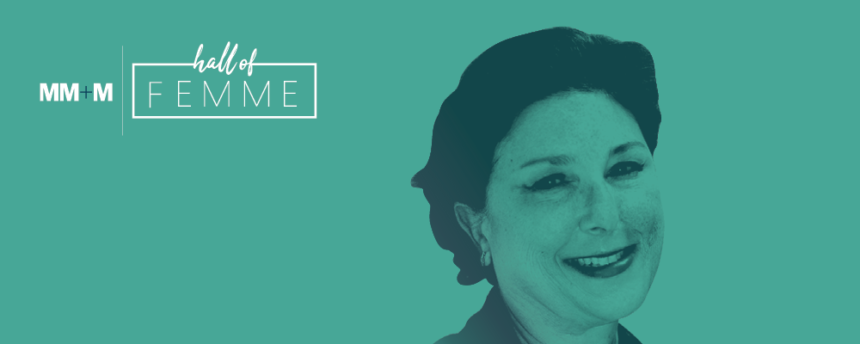What would you do if you didn’t work in healthcare?
Healthcare has become so much a part of me that this is a hard question to answer! I would work in journalism because much of what I love about health I also love about journalism. Both fields require asking good questions. My father was an editorial science writer, so I learned how to ask “why” early and never stopped. I love getting to the heart of a problem.
Can you give a shout-out to someone who helped you at a pivotal time in your career?
I was fortunate to have a strong female boss in my first job after college. While this was years after Mad Men, Madison Avenue culture was still alive and well and she taught me how to show up in a boardroom and not be afraid to speak my mind simply because I was young and female. From my first boss who taught me how to give a great presentation to my current boss who gave me a blank slate to create the planning discipline of the future, I’m grateful to the women leaders in my life who believed in me during the pivotal moments in my career.
Work to live, or live to work?
This is a tough question and one that I’ve struggled to answer. After surviving cancer, I put language to my life’s purpose: to use communications to save lives. As a cancer survivor, I want to use my life to help others make more confident decisions about their health and I’m fortunate to be able to do that through my job. So, in many ways, my life and my life’s work are difficult to separate.
That said, I’m working on crafting boundaries and protecting time with family. I recently took my 10-year sabbatical from work, spending a month in New Zealand with my daughter — and deleted Outlook from my phone!
Share a moment when you left your comfort zone; what did you learn?
My biggest “leaving my comfort zone” moment was working for myself. Being laid off is almost a rite of passage for many of us who work in advertising, and after years of working for large organizations, I started doing freelance strategic consulting. On one hand, I learned what I could achieve on my own, but I also learned that I’m at my best when I’m a part of a team. I discovered why the adage, “If you want to go far, go together” is true; the work is always better when diverse minds are attacking a problem from multiple angles.
What do you find frustrating about working in healthcare marketing?
It’s challenging to work in such a regulated environment, especially when you arrive from a consumer background. There are things that make perfect sense in other categories that you simply can’t do in this one. However, it also presents an extraordinary opportunity to be creative; you have to take it as a challenge and not a frustration.
To ensure pay parity and career advancement for women, I will …
Look for unicorns and remind them what they’re worth. In my career, some of the most successful strategists I’ve hired used to be journalists, marathon runners and ballet dancers.
We can’t advance people we don’t hire, and oftentimes women won’t even apply for jobs if they don’t have all the “right” qualifications. So, I’m always on the lookout for people from unusual backgrounds, or women in the organization trying to navigate into something new. I always try to give people room for new opportunities — and hire those that some might overlook — because I’ve learned diversity delivers better thinking, and in healthcare, better thinking can save lives.
Where would you like to see more progress in the #MeToo movement?
We’ve seen a lot of progress, but there’s still room for improvement. While I’m fortunate to work at an organization with strong gender parity in the C-Suite, only 6.6% of Fortune 500 companies are helmed by women. In the same way we set financial targets, we need to set targets for the number of women leading organizations. And it’s not a metric for metric’s sake — research has shown that women leaders drive business success, we bring something to bear that is unique. You don’t get diversity if you don’t make it a priority.
What is one thing you would tell young women starting their careers in healthcare marketing?
If you have a strategic mind and a thirst to make an impact, we can teach you the rest. When I look at the most successful women, they are self-driven and always learning. And once you get in the door, volunteer for pitches, it’s the best way to learn the business, network and work with brilliant and diverse minds. Never stop learning, never stop asking questions and stay creative.
Favorite song?
“Hallelujah” by Leonard Cohen.
Which three people, alive or dead, would you like to host at a dinner party and why?
Atul Gawande. Because he is on the forefront of creating what the new delivery of health is.
Brené Brown. Ever since I heard her TED Talk, the notion that you can’t have vulnerability without courage infuses everything I think about. In Dare to Lead, she encourages readers to choose two values — I chose gratitude and integrity. Gratitude because I’m grateful to be alive and integrity because nothing else matters. She taught me how to be a friend, a mom, and how to live a life of vulnerability.
FDR and Eleanor Roosevelt. If they come together, can they count as one? My grandfather was in the White House press corps and was FDR’s favorite photographer. I grew up hearing stories about FDR and how he never let weakness get in the way of making decisions that make a difference. FDR, and the quiet influence of Eleanor, demonstrate what true leadership really looks like.
From the September 01, 2020 Issue of MM+M - Medical Marketing and Media








